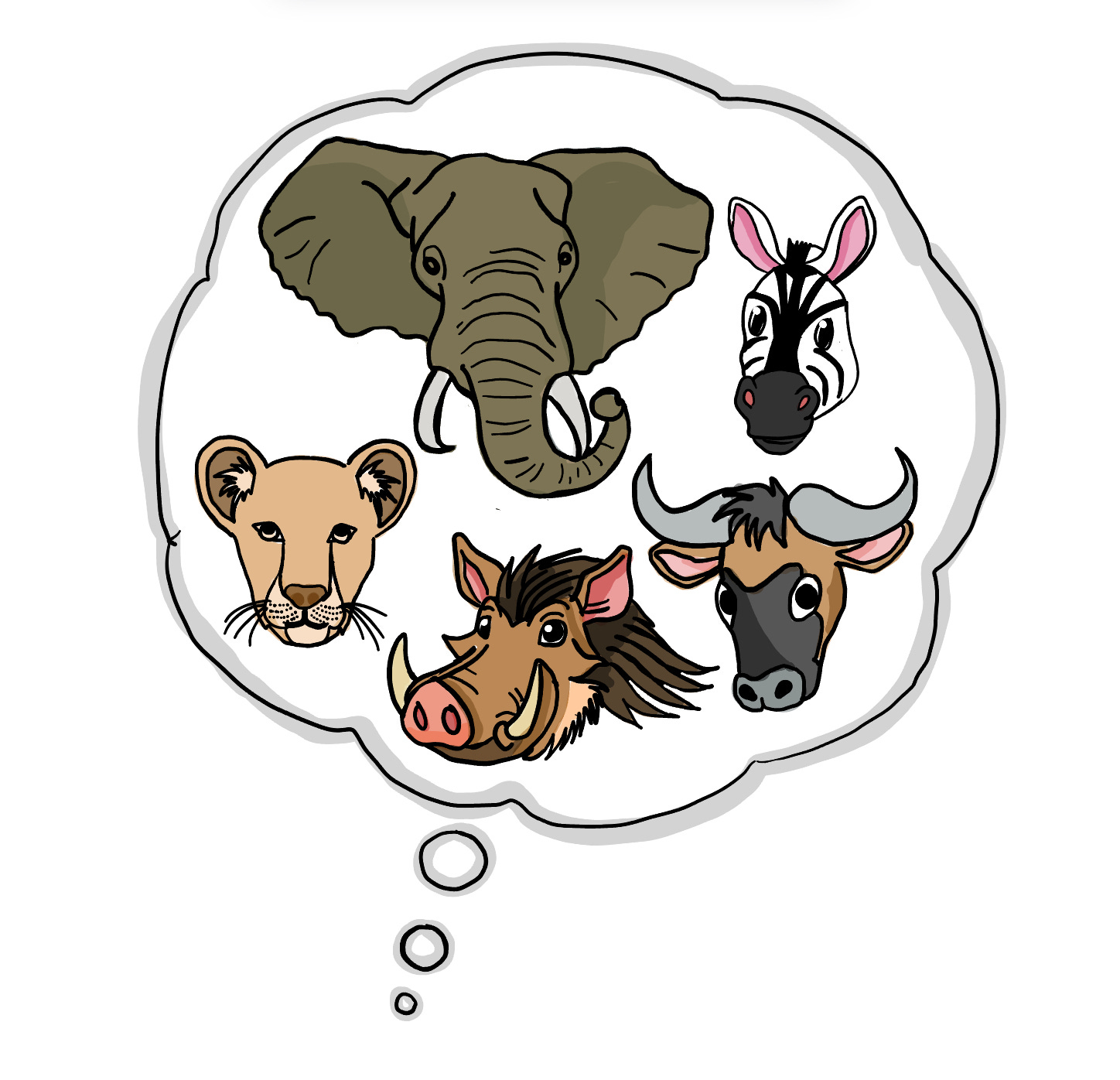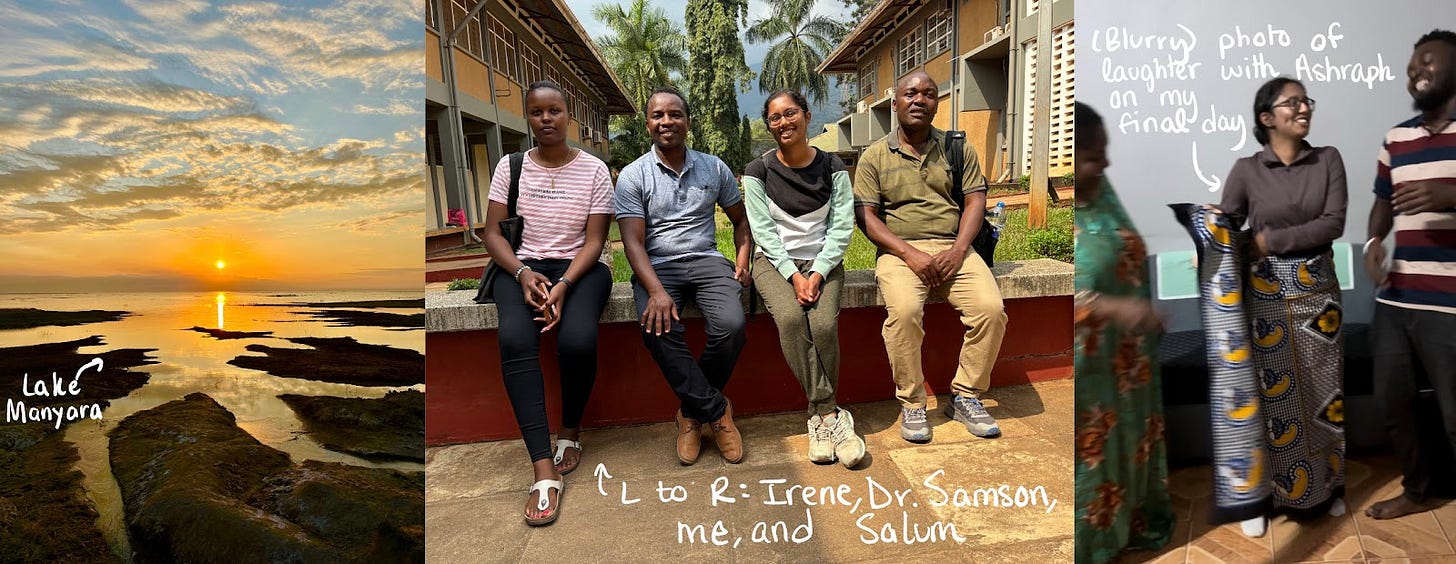Fleeing from Elephants, Going on Joyrides…and Other Final Reflections from Tanzania
In the final installment of my Tanzania travel series, I reflect on the immersive wildlife experiences I had apart from fieldwork. Accompanying veterinarians on a trip to tranquilize wildlife and befriending undergraduates with interests in conservation science only further enriched my time in this incredible place.
When I arrived in Tanzania to further my research on human-wildlife conflicts and climate change, little did I know that I would soon also witness the tranquilization of a lion, walk alongside zebras, or learn how blood is drawn from an elephant’s ears. These experiences, as well as many other life-changing opportunities afforded to me here, have strengthened my passion for wildlife conservation — and my resolve to return to Tanzania again.
On one of our Sundays off from research, a veterinary professor at the Sokoine University of Agriculture (SUA) and Salum’s former college roommate, Dr. Richard, invited me to join him and his 135 students at Tarangire National Park to learn how to dart wild animals. Darting is a practice commonly done by veterinarians, in which animals are tranquilized for the purposes of relocation, collaring, injections, and other scientific or research purposes. As my studies at Cornell focus on the optics of trophy hunting and darting safaris, the opportunity to witness (though not participate in) wildlife tranquilization firsthand was incredible!
As a group, we witnessed professionals immobilize a wildebeest, zebra, elephant, and lioness and then mass and draw blood from them. Though seeing animals I had only ever fawned over in storybooks was itself mesmerizing, the lessons I learned stretched far beyond the tranquilization process. I was surprised to learn, for example, that lions generally carry a higher disease risk than herbivores and thus must be handled with gloves, and that immobilized animals can quickly overheat if cold water isn’t periodically poured on them. The experience was not without its laughs: The elephant woke up earlier than expected and all of the students (myself included) shrieked and sprinted. While the terror that pulsed through us in the moment is much more amusing now than it was then, I will never forget the day I fled from an elephant!
My 15 hours at Tarangire were marked by many new friendships as well. Noreen, Silvan, Ester, Kelvin, and so many other undergraduates made me feel instantly welcome despite that I was a newbie, and we continue to remain good friends today. Though we returned home nearly two hours later than anticipated (we couldn’t leave until the lioness had awakened), time flew quickly as we tried to spot leopards through the windows of the bus and sucked on orange- and blue raspberry-flavored hard candies. And I am incredibly grateful to Dr. Richard and all of the game rangers at Tarangire, without whom this experience would not have been possible. Despite the many insect bites and (mild) dehydration that resulted, I would relive this day in a heartbeat.
In reflecting on the past several weeks in Tanzania, I’ve realized that even the most seemingly small experiences have shaped my time here in invaluable ways. I remember being mesmerized by the farmer who jumped onto our bus during our 12-hour ride to Arusha to slice oranges for each passenger, and by the students at Salum’s wife’s school who proudly sang the Tanzanian national anthem in unison. I will never forget witnessing zebras and wildebeest openly grazing the grasses surrounding Lake Manyara while I strolled there, or going on a joyride on a landcruiser to the Makuyuni Wildlife Park for a breathtaking view of the expansive grassland landscape. And I am especially grateful that I got to visit SUA again the day before leaving Tanzania, to say goodbyes to Dr. Richard as well as six other professors, with whom I have stayed in touch and whom I hope to visit again.
On my final day in Tanzania, I took a bus from Morogoro to Dar es Salaam with Salum and Ashraph (one of my research assistants) and visited Ashraph’s family. They treated us to a delicious dinner of nyama ya kuku (chicken), ndizi (raw banana curry), majani za maboga (pumpkin leaves), majani ya muhogo (cassava leaves), wali (rice), and juisi (juice), after which they gifted me a beautiful traditional kanga. My final moments in Tanzania could not have been sweeter, filled with laughter and bonding over a common meal.
Now that I’ve returned to Texas, I’ve found myself acutely aware of my privilege and simultaneously homesick for my Tanzanian lifestyle. To live within four walls with ample access to food, clean water, and medical care is indeed one of the greatest gifts, though I believe it is just as large a privilege to forge unbreakable bonds with people who live an ocean away. I often accidentally let a few words of Swahili slip when I talk to my parents and especially look forward to my weekly WhatsApp video calls with my Tanzanian family. I can still hear the invigorating echo of activity in the open-air markets in Morogoro — a stark contrast to the sterile air-conditioned supermarket near my house with so many packaged and processed products that my head starts to spin. I crave bananas with every meal (a habit I developed while doing fieldwork) and long to recreate the tangy flavors of my host family’s fish stew. Most importantly, however, I miss the people. Salum, his family, and his colleagues and friends enabled me to have the most culturally, linguistically, and environmentally immersive experience that I could have possibly imagined. While I wish I could have prolonged these memories indefinitely, I plan to return to visit my Tanzanian family and friends again. Despite our heartfelt goodbyes and hugs, we agreed to reunite soon!
Or, as Ashraph taught me in Swahili: Tutakuwa pamoja tena, sako kwa bako! 😃






